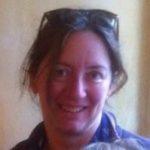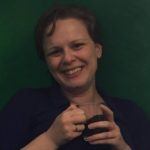-
Asked by anon-370952 on 16 Nov 2023.0
-
Octavia Brayley answered on 16 Nov 2023: last edited 16 Nov 2023 9:58 pm
That’s a brilliant question, Eva! To get started, it’s really important to understand the scientific method and how this ensures that researchers carry out experiments correctly (e.g., that the experiments can be repeated by other scientists and that they show valid results with the relevant controls), and to ensure they are not biased in their studies or analysis. When scientists carry out experiments, they publish their results and other scientists scrutinise their methods before allowing the paper to be published. This ensures the scientific method is being upheld!
Steps of the scientific method:
1. Make an observation.
Let’s suppose that you get two slices of bread, put them into the toaster, and press the button. However, your bread does not toast.2. Ask a question.
Why didn’t my bread get toasted?3. Propose a hypothesis.
A hypothesis is a potential answer to the question, one that can somehow be tested. For example, our hypothesis in this case could be that the toast didn’t toast because the electrical outlet is broken.
Hypothesis: Maybe the outlet is broken.
This hypothesis is not necessarily the right explanation. Instead, it’s a possible explanation that we can test to see if it is likely correct, or if we need to make a new hypothesis.4. Make predictions.
A prediction is an outcome we’d expect to see if the hypothesis is correct. In this case, we might predict that if the electrical outlet is broken, then plugging the toaster into a different outlet should fix the problem.
Prediction: If I plug the toaster into a different outlet, then it will toast the bread.5. Test the predictions.
To test the hypothesis, we need to make an observation or perform an experiment associated with the prediction. For instance, in this case, we would plug the toaster into a different outlet and see if it toasts.
Test of prediction: Plug the toaster into a different outlet and try again.
If the toaster does toast, then the hypothesis is supported—likely correct.
If the toaster doesn’t toast, then the hypothesis is not supported—likely wrong.
The results of a test may either support or contradict—oppose—a hypothesis. Results that support a hypothesis can’t conclusively prove that it’s correct, but they do mean it’s likely to be correct. On the other hand, if results contradict a hypothesis, that hypothesis is probably not correct. Unless there was a flaw in the test—a possibility we should always consider—a contradictory result means that we can discard the hypothesis and look for a new one.6. Iterate.
The last step of the scientific method is to reflect on our results and use them to guide our next steps.If the hypothesis was supported, we might do additional tests to confirm it, or revise it to be more specific. For instance, we might investigate why the outlet is broken.
If the hypothesis was not supported, we would come up with a new hypothesis. For instance, the next hypothesis might be that there’s a broken wire in the toaster.
In most cases, the scientific method is an iterative process. In other words, it’s a cycle rather than a straight line. The result of one go-round becomes feedback that improves the next round of question-asking.Here’s a video on the scientific method:
Now that we know the basic scientific method, we can think about the specific attributes and characteristics of a great researcher. Here’s a list of 5 I think are the most important:
1. Be curious and ask lots of questions. Never take anything at face value, instead ask “Why? does it do that?” Or “why doesn’t that work?” And “How did you find that out?” Being curious and interested in the world and things around you gets you thinking like a scientist!
2. Be able to analyse other people’s experiments. When you carry out an experiment in your science class at school, think about the ways to make it more reliable, more valid, and more accurate. How could you have improved your method? What were the limitations? These are common questions in GCSE and A-Level exams, so it’s good to start getting practice. As scientists, we often review other people’s work before they can publish their results, so we have to be good at judging methods and providing constructive criticism when it’s appropriate.
3. Read about scientists and their research/experiments! Learning about other scientists and seeing how they research their particular topics of interest will help you think like them. Here’s a video on Charles Darwin and his theory of evolution:
4. Be open-minded and critical (in a positive way!). When scientists come up with hypotheses, we try to disprove these ideas. This ensures we find the correct answers rather than being biased towards what we ‘think’ is correct. Finding out your hypothesis is true can be exciting, but scientists usually get more excited when they find out the opposite! This is because it tells us that there are other things going on that we first hadn’t thought about and there are probably lots of future experiments we can do. Critical thinking is very important to be a great researcher.
5. Be a good communicator. Scientists need to be able to communicate their work to other scientists- both in a written format through papers, and verbally at conferences when they’re doing presentations. It’s really important that other scientists can understand what you’re doing to analyse your methods for publication. Scientists from different fields also sometimes work together to solve problems, so being able to discuss your research in a clear and informative way can be really great for your future experiments and work. Presentations and writing in a scientific way come with practice. So take every opportunity at school…whether that be through debates, drama, or poetry. More and more, scientists are also expected to be able to communicate their work to the public and other people who don’t work in science. This gets more people involved with STEM and will hopefully inspire the next generation of scientists!
I hope that answers your question and let me know if there’s anything else you’d like to ask 🙂
-
-
Jonathan Allen answered on 17 Nov 2023:
An amazing answer from Octavia there with some great advice! The simple advice I have when asked this question is to “always ask questions”. That’s what scientists do – they ask questions about things they don’t know and they keep asking questions until they find out the answer. There’s no such thing as a ‘silly question’ – only a question you don’t know the answer to it yet. And if you ask someone a question and they can’t give you an answer that you understand, then ask somebody else so you can build your knowledge from elsewhere. That’s how we conduct research every day.
-
Paula McMahon answered on 17 Nov 2023:
Do your research and speak to adults about what your next steps are
-
Amy Stockwell answered on 17 Nov 2023:
Wow Octavia’s answer is brilliantly detailed. I would say curiosity and practice are my top tips.
– Science is about asking “why does x do y?” and then investigating.
– The only way to improve any skill is with practice, whether that be science, sport or a musical instrument. -
Andrew Lyon answered on 17 Nov 2023:
I agree that Octavia’s answer is brilliant and has lots of really good advice.
I have found that being curious and asking lots of questions has really helped me to understand and learn things. I’ve also found that being enthusiastic and being able to explain things as simply as possible really helps me to communicate complex problems to people so that they can understand the issues without having to go into lots of detail.
-
Ian McKinley answered on 21 Nov 2023:
In addition to the other answers and specifically to get started with scientific research, it is worth checking if there are any work experience opportunities in any technical area that you are interested in. Many organisations bring in students during holiday periods and may even pay them to learn a bit about the work that they do. This is becoming ever more important as shortages of scientists become greater. Because scientific work is so international, there can even be opportunities to gain such experience abroad.
-
Ollie Thomas answered on 28 Nov 2023:
As with the others I think I can’t add much to Octavias answer. Just to add to what Ian said I think getting experience is a really great place to start. It doesn’t have to be in something you typically think of as ‘science’ either, my first experience was at a pasty factory but we were using the scientific method to solve problems there in the exact same way as we do in the lab.
Related Questions
what is the most unexpected/suprising thing you have discovered
what has been your favourite project that you have worked on?
what do you want to achieve?
What GCSE's do you have
What has been your favourite engineering project?
can you tell us a science joke
How does History play into what you have seen.
On a scale from 1-10, how important is your current project?
Have you ever found any undiscovered animals
Latest Questions
-
If the temperature of the earth has been higher than it is now before, why are we so worried about it? (2 Comments)
-
What’s the coolest thing you’ve seen working in paleontology.
-
What do you do in your daily life to try and reduce co2 emissions?
-
interesting facts
-
how long did it take you to become a blackbelt
-
Where do you go skuba diving
-
Have you ever gotten a form of radiation poisoning or any form of injuries on the job?
-
how much dollars do you get paid a month
-
what is the most unexpected/suprising thing you have discovered (2 Comments)
-
whats the coolest thing that your job has let you do so far?







Comments